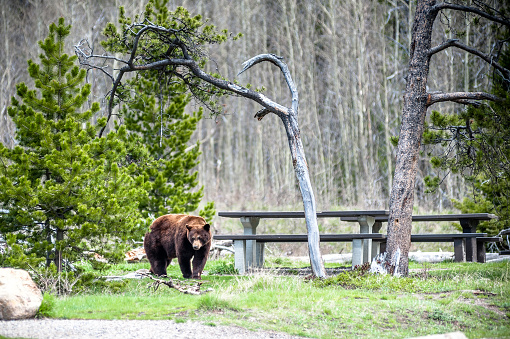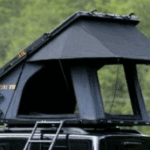Sometimes moving close to nature can put you on the same path as wildlife. Camping is an outdoor activity that can expose you to nature and its inhabitants. Wildlife is an undomestic animal species that roam the open nature, including deserts, plains, woodlands, forests, grassland, and other areas. Some wildlife may threaten human safety, health, property, and quality of life because their path clashes with that of humans. There are safe ways to enjoy the open nature without being in the way of this wildlife or drawing their attention to you. Here are a few tips on how to avoid unwanted wildlife encounters while camping.
Eliminate Odors from Food and Supplies
Most wildlife, such as bears, foxes, raccoons, wild dogs, and other animals, can be drawn to the smell of human food. These animals have a very good key sense of smell and can perceive food that is miles away. They can be drawn to your food supplies and don’t mind going through your tent and trash to satisfy their urge and curiosity.
It’s not only trash that will attract wildlife to you, all items include toiletry commodities such as toothpaste, soap, lotions, deodorant, and even bug sprays.
So to avoid any encounter with wild animals, it is important to properly store your food supplies inside storage containers and avoid littering food around camp areas and tents. Also, it is necessary to properly dispose of your trash and keep the trash at least 10 feet away from your tent and camp area.
Carry Basic and Important Items
When camping, it is important to carry the important basic items. Stock up on flashlights or laps to keep in the tent at night. A flashlight is an essential tool that helps illuminate the dark allowing you to point and navigate in the right direction when walking at night.
Your safety is very important, so carry basic self-defense items like bear spray, pepper spray, and tasers if possible. Also, ensure you bring storage containers to preserve your food items properly.
Keep Pets on a Leash
When camping or hiking, always keep your pet on a leash to prevent them from running into the path of wild animals. Pets, like cats and dogs, are curious and can drift away from you into the territories of this wildlife which can be tragic.
Some wildlife can see your pet as a food source, so it is important to put them on a leash to protect them from danger. Others may feel threatened and attack you or your pet if you get too close.
Although It is not advisable to place pets on leashes and abandon them to fend for themself, some wild animals might get curious and attack them.
Keep Your Surroundings Clean
Always keep your surroundings clean and avoid littering food and by-products around tents and camp areas. Also, it is advisable always to try scrubbing pots and pans and picking up trash without leaving anything behind.
Keep Your Distance
Wildlife can be amazing to watch from a distance, but you do not want to be in their way or to be seen as food. It is always important to remember that they are undomesticated animals and are unfamiliar with human ways of doing things.
If you get too close, you can be easily seen as a threat or prey, leading to tragic circumstances. Some wildlife may get territorial and aggressive toward humans during mating season, especially the males, so you are advised always to keep your distance.
When camping, you are advised not to feed wildlife because it creates an expectation that they can receive food from you and other campers.
This can make them persistent and sometimes even violent, and attract them to your campsite, which can be very dangerous.
Change Your Clothes After Cooking
While cooking is essential to camping, it can also attract wildlife. Unwanted guests can range from harmless bugs to dangerous predators, so it’s important to take steps to avoid attracting them in the first place. One way to do this is to change your clothes after cooking. Food smells can linger on clothing, making it more likely that animals will be drawn to you. Even if you’re only cooking for a short time, it’s worth changing into fresh clothes before heading back to your campsite.
Conclusion
You can reduce your chances of coming in contact with wild animals by following the guidelines mentioned above. Although it is not common for wildlife to attack humans while camping though, it is possible. For a safe and adventurous camping experience, it is important to be well-equipped with the basic and important tools to enjoy camping.
Click here to purchase your quality camping gear.






